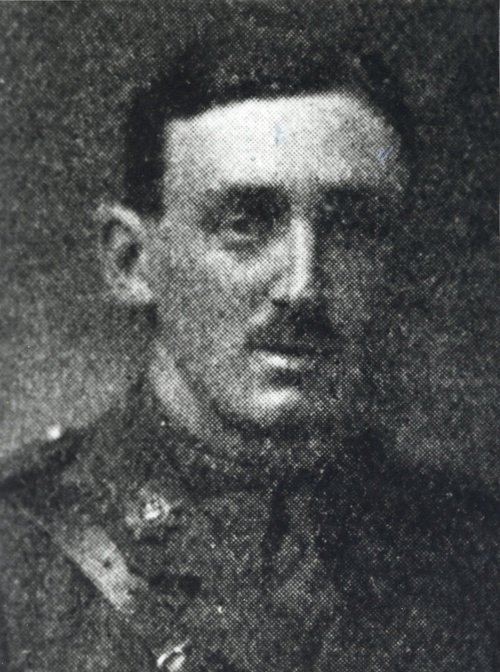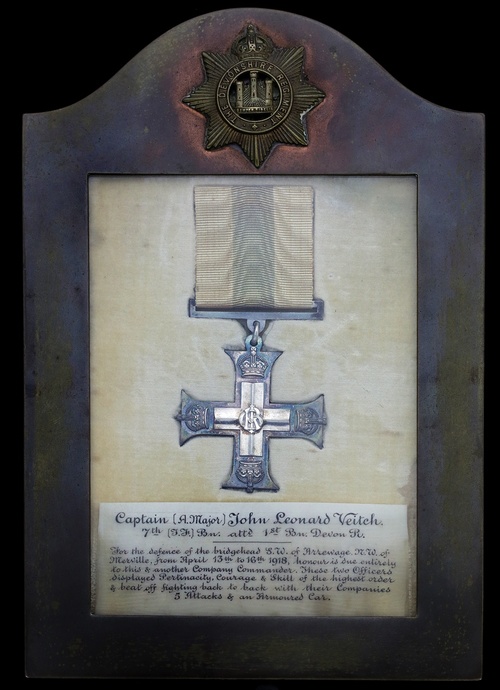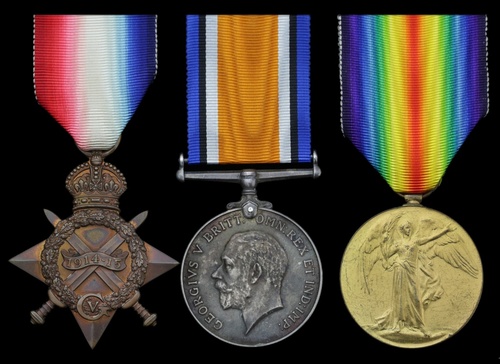Auction: 20001 - Orders, Decorations and Medals - conducted behind closed doors
Lot: 667
The moving Great War M.C. group of four to Captain (Acting Major) J. L. Veitch, Devonshire Regiment, who was decorated for his heroic defence of a bridgehead south-west of Arrewage in April 1918, in which two Companies of the Devons repelled five German attacks
Previously mentioned in dispatches, Veitch was killed in action near Merville in May 1918; the scion of an important family of horticulturalists, he is commemorated on the war memorial at The Royal Botanic Gardens, Kew
Military Cross, G.V.R., unnamed as issued; 1914-15 Star (Capt. J. L. Veitch Devon R.); British War and Victory Medals 1914-19 (Major J. L. Veitch), the M.C. housed in a glazed cream velvet backed brass display case surmounted by the regimental cap badge, with a handwritten label below, extremely fine (4)
M.C. London Gazette 16 September 1918:
'For conspicuous gallantry and devotion to duty. He and another company officer, with their companies, defended a bridgehead against five enemy attacks and an armoured car. Under heavy shelling they displayed courage and skill of a high order, and did most valuable service.'
John Leonard Veitch was born in Exeter in 1887, the second son of Peter Christian Massyn Veitch, J.P., a prominent Exonian who became Governor of The Devon and Exeter Hospital. He belonged to a long line of Devonshire horticulturalists who made important botanical discoveries in the South Pacific islands, and who were instrumental in starting the Chelsea Flower Show. Young John attended Exeter School from July 1900 to 1905; the 1911 Census shows him working in his father's nursery business, Robert Veitch & Sons. He also worked at The Royal Botanic Gardens, Kew. The family lived at 11 Elm Grove Road, Exeter.
Veitch gained a commission with the 7th (Cyclist) Battalion (Territorial), The Devonshire Regiment, based at Exeter in 1915. Attached to the 1st Battalion, he arrived in France on 29 December 1915, and was mentioned in Sir Douglas Haig's Dispatch of 9 April 1917 (London Gazette, 22 May 1917). His Military Cross was awarded for the defence of a bridgehead south-west of Arrewage, north-west of Merville, from 13-16 April 1918. Two Companies of the Devons, one of them led by Veitch, held back five determined German assaults over the course of three days, even stopping an enemy armoured car. Just over a month later, on 21 May, Veitch was killed in action aged 31. His award of the Military Cross was posthumously reported in the Western Times on 4 October 1918. Veitch is buried at the Thiennes British Military Cemetery, and his Great War medals were posthumously sent to his father on 17 March 1922; sold with copied research, London Gazette entries, and photographs of the recipient and the war memorial at Kew.
Subject to 20% VAT on Buyer’s Premium. For more information please view Terms and Conditions for Buyers.
Sold for
£1,400
Starting price
£800











